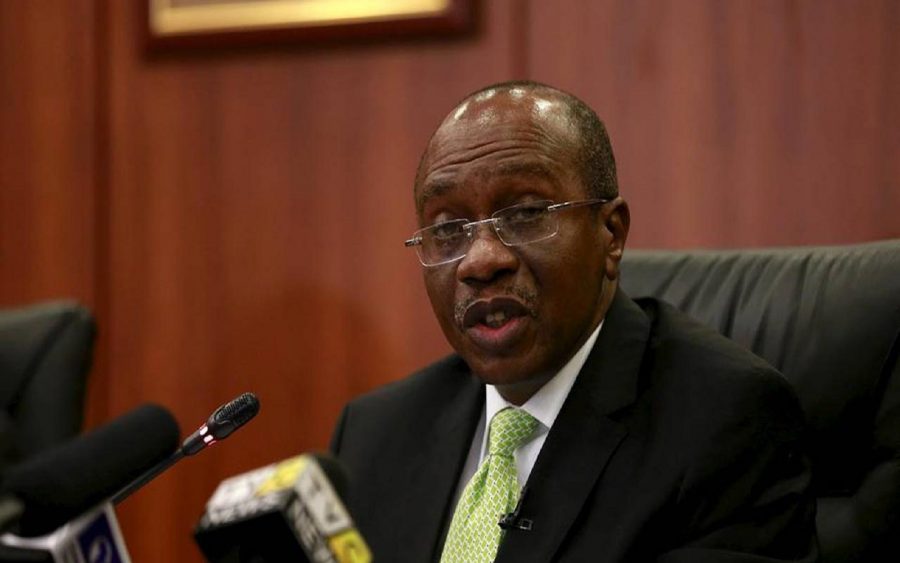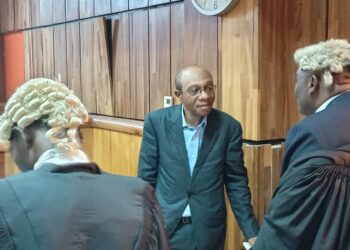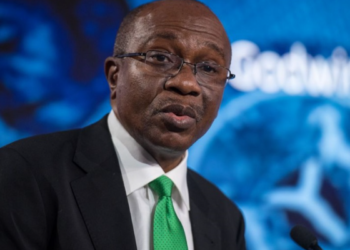The Monetary Policy Committee (MPC) of the Central Bank of Nigeria (CBN), maintains a hold in Monetary Policy Rate (MPR) at 13.50%. Also, other parameters such as CRR, Liquidity ratio and asymmetric corridor are equally held constant.
After the recent cut in the Monetary Policy Rate (MPR) by 50 points in March, all hands were on deck as the CBN Governor, Mr. Godwin Emefiele, read the communique at the end of two-day MPC meeting on Tuesday in Abuja.
Highlights of MPC decision
- MPR is kept at 13.50 percent
- The asymmetric corridor of +200/-500 basis points around the MPR s retained
- CRR is held 22.5 percent; and
- The Liquidity Ratio is also kept at 30 percent.
Reasons to hold Rates – MPC noted that the global and domestic developments have conditioned an environment of low optimism in the macroeconomic and financial sector space, forcing central banks to return to accommodative monetary policy.
Hence, the Committee considered the options of whether to be more accommodative, tighten or hold its position.
- MPC felt the recent uptick in inflation should lead to tightening MPR but feared it would constrain Deposit Money Banks (DMBs) to increase access to credit.
- As regard loosening, MPC noted lowering rates would aggressively restart the capital activities, and stimulate growth.
- However, MPC noted there is a need to restrain from loosening in order not to exacerbate inflationary pressures
- Also, MPC noted loosening may expose the economy to liquidity surfeit and without a corresponding increase in real sector output
- Hence, the decision to maintaining the monetary policy rate at its present level became essential, for a better understanding of the momentum of growth before determining any possible modifications.
Growth Momentum sustained – Despite the 2.01 percent growth in Q1 2019, MPC observed that actual output remains below potential, implying that the economy still had sufficient headroom for non-inflationary growth. The MPC stressed that the recent growth in market capitalization reflected new listings in the market, prominent amongst which are MTN and Skyway Aviation Handling Company Plc and additional listing from the merger between Access Bank and Diamond Bank.
However, MPC stressed the Nigerian economy still exhibits some fragility in output growth during the second quarter of 2019. Meanwhile, the committee stated that its revised output projections indicate that the Nigerian economy would grow by 2.38 percent by the CBN in 2019.
Analsyts expected a hold – Analysts expected a hold of the MPC rate, due to the relative stability enjoyed in the foreign exchange market. According to Mr. Ayodele Akinwumi, the head of research at First Securities Discount House Limited (FSDH),
“A further cut in rate could lead to lower yields, a further cut could lead to capital flight in the economy and hamper economic performance. As a result, a hold decision on the MPR seems more appropriate.”
Similarly, financial market expert, Onome Ohwovoriole, expected MPC to keep rates constant.
“A cut is out of the question in view of rising inflation. Also, an increase is unlikely in light of fragile growth as evidenced by the 2.01 percent Q1 2019 GDP growth. Also note that. As for the economy, a hold decision will have little or no impact as Nigeria is not a credit driven economy, where the interest rate is of great importance.”
Markets may turn bearish – In the MPC communique, it was stated CBN should introduce mechanisms to limit Deposit Money Banks (DMBs) access to government securities so as to redirect bank’s lending focus to the private sector.
The implication of this is that, by dissuading banks from investing in treasury bills and other government securities, CBN is basically triggering less demand in its bills which could lower yields on TBills. It means anyone looking to buy treasury bills should start to look forward to even low yields.
Reacting to the hold of MPR, the publisher of Nairametrics, Ugo Obi-Chukwu, stated
“The stock market relies on demand to boost trade and returns. The negative return year to day is largely due to lack of interest by portfolio investors. By keeping rates high, most investors will still rather buy government securities than invest in stocks. So retail investors should see this as more reason why they may avoid stocks”





















